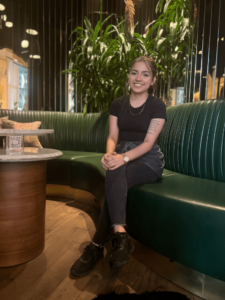January is Human Trafficking Prevention Month: Part 2 By: Justice Venture International [As we start the new…
When Justice and Hope Create Momentum
In March 2023, a study published by the Dallas County District Attorney’s office released its findings after reviewing cases of youth in the Dallas juvenile system. Dallas County District Attorney John Creuzot had raised concerns that the system had “a high rate of repeat offenders” and wanted to explore the root causes. Researchers spent a year interviewing juvenile justice staff, officials and judges to understand complications within the Dallas County system, as compared with others in Bexar, El Paso, Hidalgo, and Tarrant counties.
The report found that children arrested and held in juvenile detention in Dallas County were incarcerated for an average of 140 days regardless of the level of their crime, their background, or risk of reoffending. This contrasts with recommendations by the Conference of State Court Administrators which sets a standard that 75% of children in confinement should see a resolution to their case in under 30 days.[i]
Research shows that the longer children are confined while waiting for a court decision, the higher the likelihood of negative future outcomes. [ii] The State of Texas also found that “Dallas County convicts more kids of crimes than elsewhere in Texas.” In an article published in March, the Dallas Mornings News noted “the average age of a youth offender in juvenile detention right now is 15.” [iii]
When Nelson Mandela declared “There can be no keener revelation of a society’s soul than the way in which it treats its children,” what does it say about our “society’s soul” when data shows our justice system is not sufficient to decrease recidivism rates and keep children from recommitting crimes? What solutions can we provide for incarcerated youth? What hope can we bring these young men and women who often leave detention centers with a criminal record that then limits employment opportunities, education prospects, and chances for a normal life? One nonprofit based in Dallas believes the solution is found in a single word: momentum. That nonprofit also happens to be intentionally named Café Momentum.
Founded in 2013 with the mission to “transform young lives by equipping our communities most at-risk youth with life skills, education and employment opportunities to help them achieve their full potential,” Café Momentum is a nationally-recognized, up-scale restaurant staffed solely by teenagers who have both a history with the juvenile justice system and a bright future ahead because of their commitment to learn and grow through their training.
These paid interns have the opportunity to access an ecosystem of support that includes: educational and financial literacy, paid workforce development training, life skills, and social skills training as they work their way through the 12-month program. As they navigate through the Tiers of Success model, interns serve through all roles of the restaurant, including as dishwashers, wait staff, cooks, hosts, and even as chefs. Simultaneously, case managers and mental health professionals walk with every intern as they progress. Case managers meet regularly with interns and work to identify individual needs to connect them to appropriate resources. A psychologist is also available to walk with them as they process trauma, abandonment, anger, and fatherlessness. Opportunities are available for those who would like to take parenting classes, receive educational assistance, and explore careers that interest them.

Adela, one of Cafe Momentum’s graduates who now serves as a Momentum Advisory Collective Ambassador
The most important lesson interns learn through their work? “That someone believes in them.” Take one intern named Adela who was 15 when she entered Café Momentum. She was not enrolled in school, had never held a job before, and was experiencing some relational challenges. At Café Momentum, Adela received the support she needed to make positive changes in her life. She enrolled in the on-site homeschool program, recently graduating in June 2021 as the class valedictorian. After graduation, she pursued her love of cosmetology and went on to attend and graduate from Aveda Institute of Dallas. Adela now works at Virgin Hotels Dallas by way of an externship opportunity provided by Café Momentum and after working there for some time, she demonstrated her work ethic and ability to learn quickly, and was asked by the executive chef to join their staff full-time. Adela also serves as a Momentum Advisory Collective ambassador where she works to advocate for justice-involved youth. Adela’s story shows why the work of Café Momentum is so dynamic in its efforts to equip youth with skills that translate beyond hospitality and into other industries.
At the bottom of every Café Momentum menu is this statement: “Our restaurant is equal parts dining room and classroom: While our Interns are working on providing thoughtful dishes with top-notch service, they’re also learning that they can (and will) rise to whatever level of expectation is set for them.” As Café Momentum expands to Pittsburgh, Pennsylvania and Nashville, Tennessee, the work of sharing hope with justice-involved youth is needed now more than ever. The Rees-Jones Foundation is humbled and grateful to work with youth development organizations like Café Momentum so that the next generation hears loudly and unequivocally, that we believe in them.
[ii] https://jlc.org/children-prison
Share this post:
Category: Original Content
January is Human Trafficking Prevention Month: Part 1 By Shellie Velasco, Program Officer [As we start the…
Welcome to 2025 By Adrian Cook, Director of Research & Evaluation “But the steadfast love of the…

